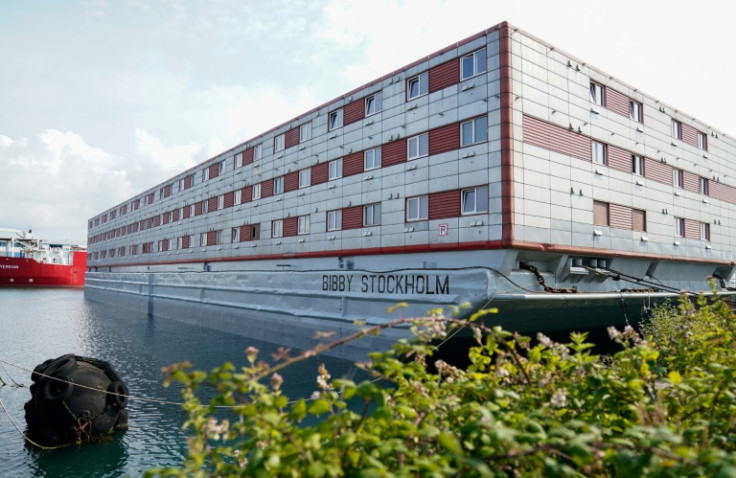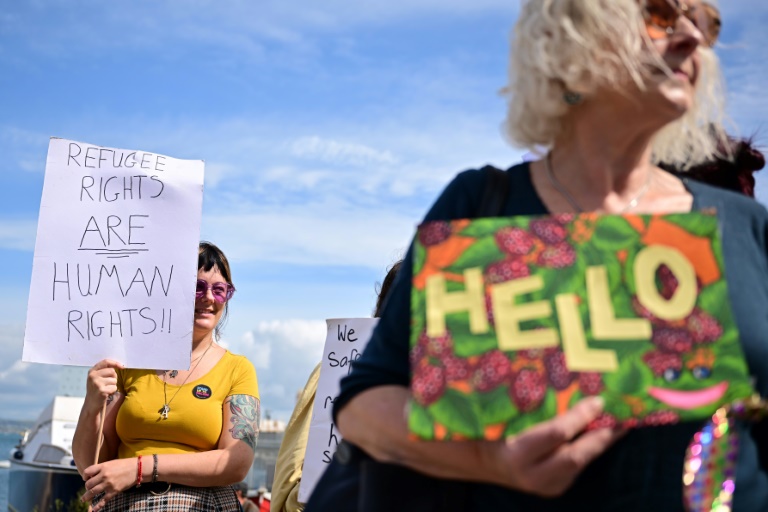AFP
Britain on Monday began housing migrants on board a barge docked off the southwest English coast, in its latest controversial immigration policy that has drawn heavy criticism from locals and rights campaigners.
The “Bibby Stockholm”, which has been moored for weeks in Portland on the Dorset coastline, accepted the first of up to 500 young, male inhabitants due to stay there, after a series of delays.
The decision to dock the vessel in Portland, a small island with a population of about 13,600 people, has prompted a backlash from some locals, including its Conservative MP, who argue the area is ill-suited to the task.
Rights advocates have also hit out at the policy, saying the barge is unfit for the purpose, with protesters from either side showing up at the waterfront site in recent weeks.
It was previously used by Germany and the Netherlands to house homeless people and asylum-seekers, but opponents in Britain have noted it was previously described as an “oppressive environment”.
The firefighters’ union last week called for an urgent meeting with the interior ministry over safety concerns raised, but officials have said it passed all necessary checks.
The UK government, which is trying to lower the costs of housing asylum claimants following a surge in cross-Channel arrivals aboard small boats in recent years, has insisted it is suitable.
Britain’s asylum system backlog had ballooned to more than 130,000 by the end of March. The bill to house those applicants and other migrant arrivals has spiralled to more than GBP6 million a day, according to officials, as they resort to using hotels and other temporary accommodation.
“The government thinks it is right to find alternatives that are cheaper and more cost effective,” Prime Minister Rishi Sunak’s spokesman told reporters Monday. “We think this is one alternative.”
Sunak’s government is also seeking to deter migrants through a new “illegal migration” law, enacted last month, which bars asylum claims by all arrivals via the Channel and other “illegal” routes.
It also mandates their transfer to third countries, such as Rwanda.
But both policies are on-hold amid a court challenge over the legality of sending migrants to east Africa.
The United Nation’s refugee agency has condemned the new rules as a “breach of international law” and warned it would expose refugees to “grave risks”.
Sunak’s spokesman said the UK leader remained committed to his pledge to “stop the boats”.
“That’s the long-term aim of the Rwanda migration partnership and the new legal powers the government has sought,” he said.

AFP







